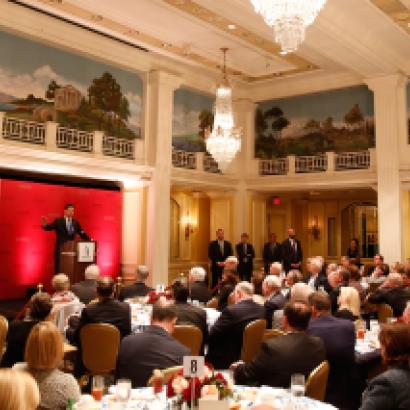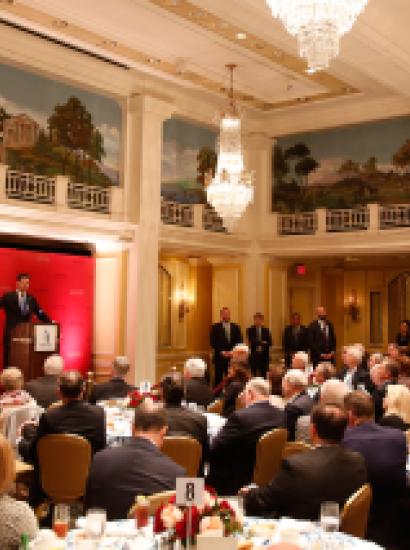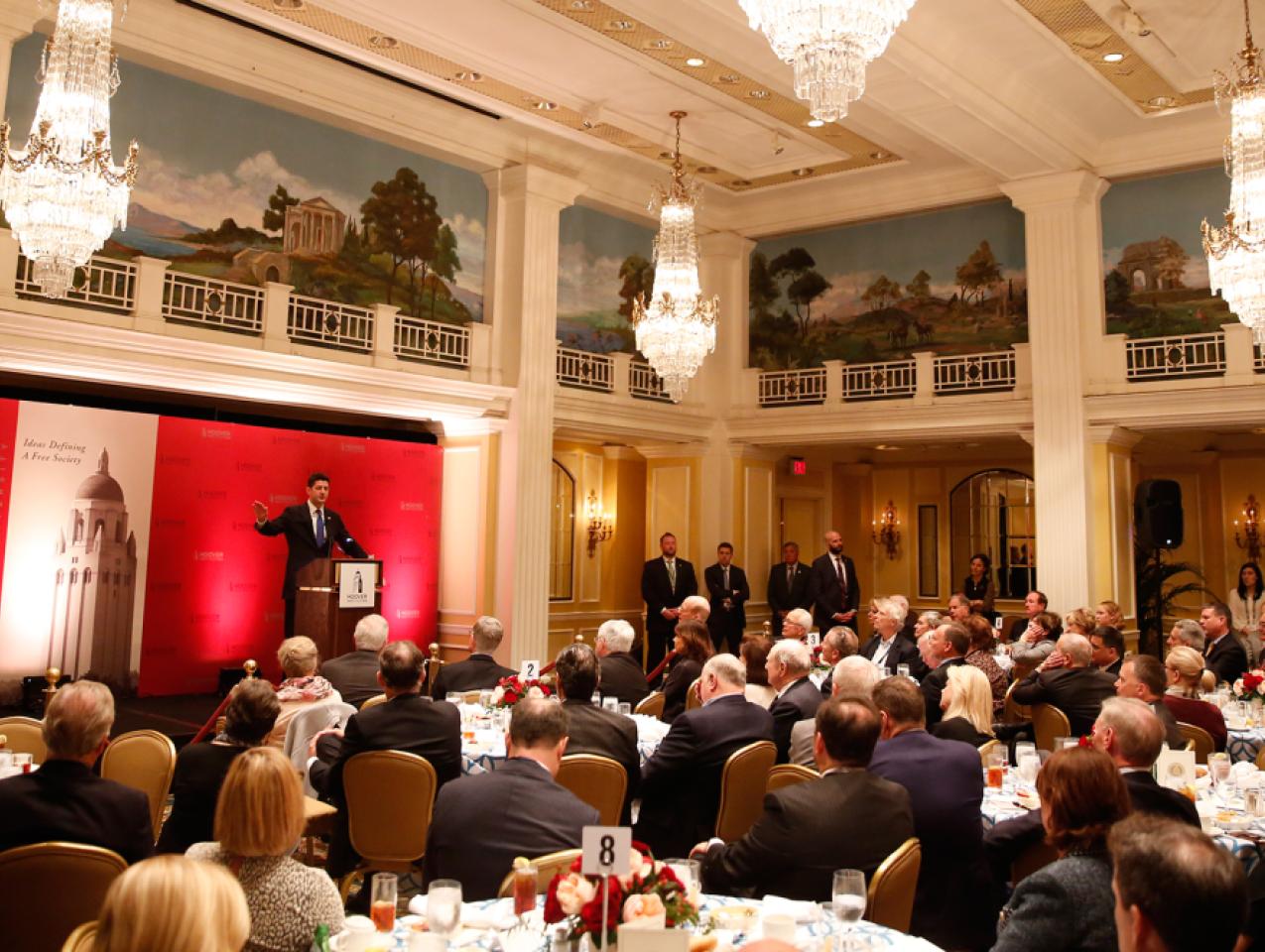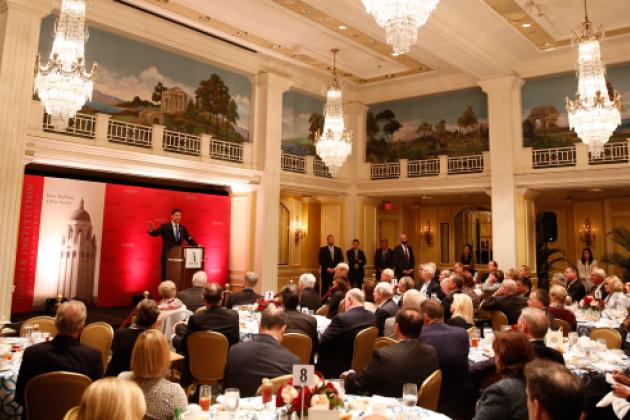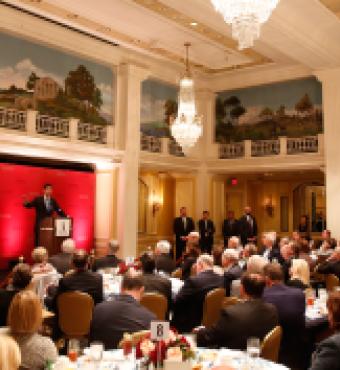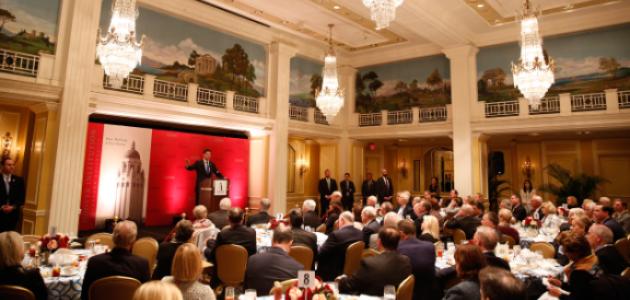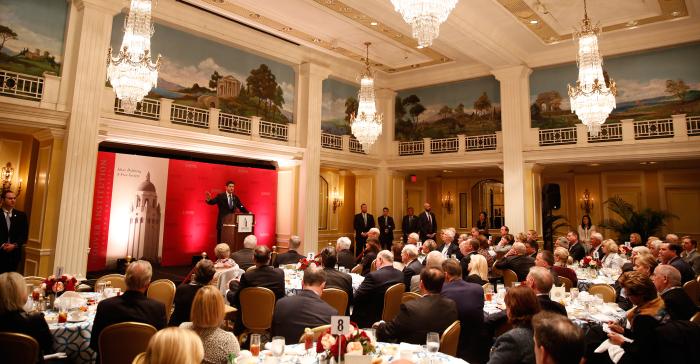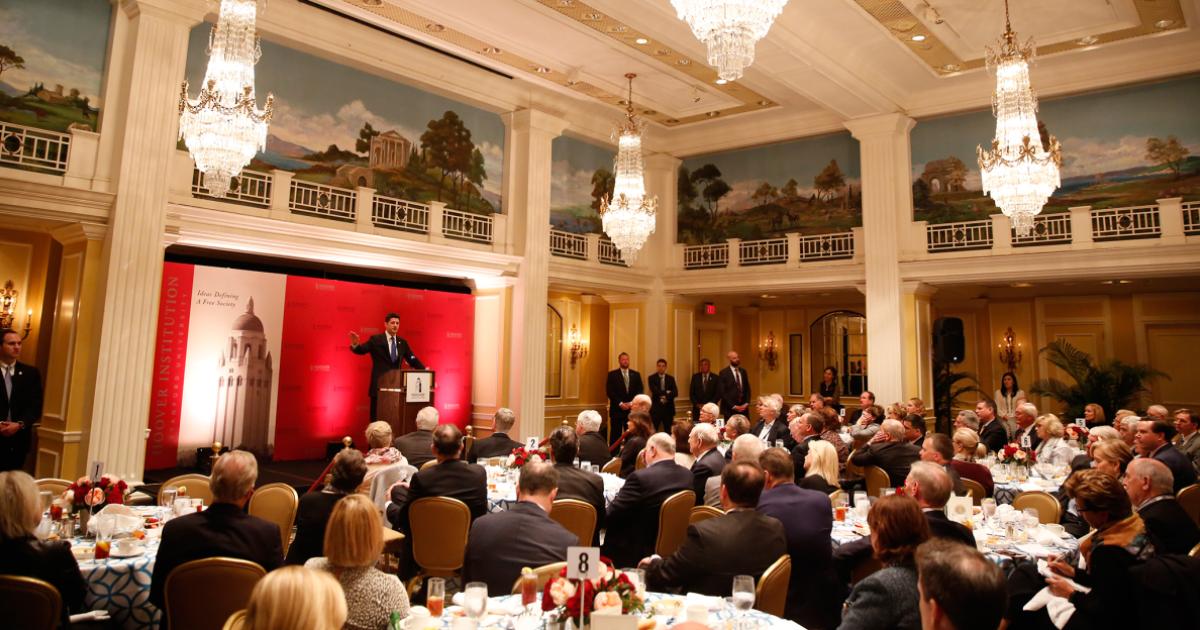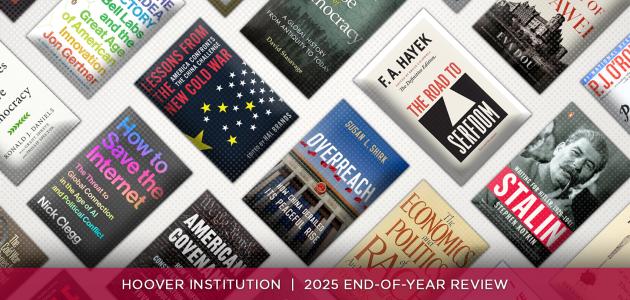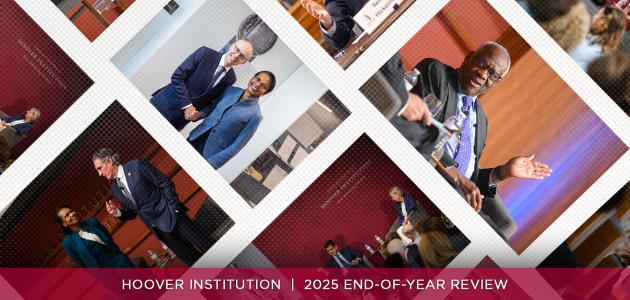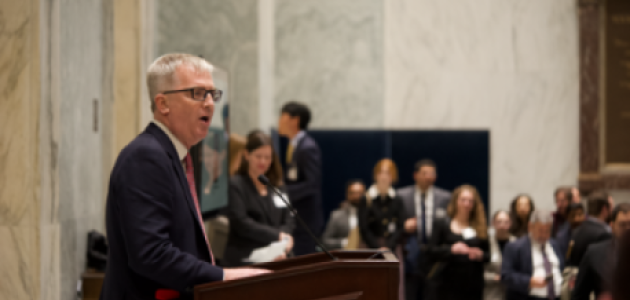Top national policy makers and leading Hoover scholars gathered at the Hoover Institution Board of Overseers meeting at the historic Willard Hotel in Washington, DC, from February 26 to February 28. The event gave attendees crucial insights into the current state of our society and the world.
HIGH-POWERED LUNCH AND DINNER PRESENTATIONS
The event kicked off Sunday night with dinner insights from John Bolton, US ambassador to the United Nations from 2005 to 2006. With a sharp wit, Ambassador Bolton outlined two immediate foreign challenges for the Trump administration: terrorism and proliferation of weapons of mass destruction. Then he called out three longer-term challenges: China, Russia, and the threat of global governance by forces trying to affect internal American issues through international bodies. Ambassador Bolton gave options for dealing with these challenges and the key role Hoover can play.
Other lunch and dinner speakers included Fox News political analyst Tucker Carlson, who delivered a freewheeling survey of today’s unprecedented political landscape; and philosopher Sir Roger Scruton, who shared humorous, warmly thoughtful reflections on what it means to be a conservative in 2017, and where Hoover fits into the historic moment. 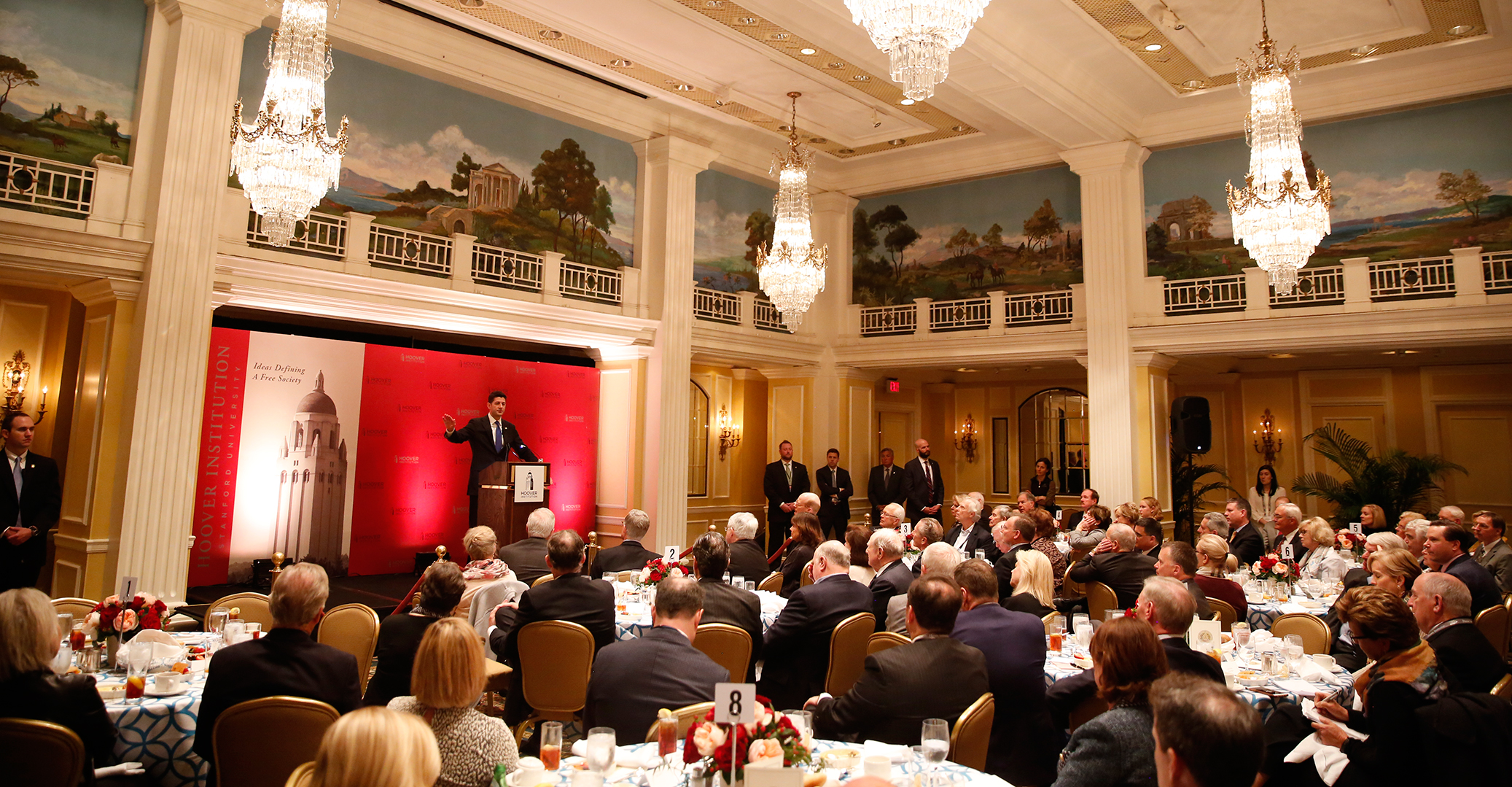
Tuesday’s lunch guest was Speaker of the House Paul Ryan, who addressed the overseers on the very day of President Trump’s speech to a joint session of Congress. Speaker Ryan made highly substantive remarks about landmark congressional priorities in the fiscal year: tax reform, repeal of ObamaCare, and regulatory relief. He also outlined the plan for entitlement reform for the following fiscal year. The Speaker used most of his time to engage in a robust Q&A with the Hoover overseers; that frank and spirited discussion covered issues that will impact the lives of Americans now and for decades.
HOOVER NEAR THE HELM OF GOVERNMENT . . . AND ACROSS THE SHIP OF STATE
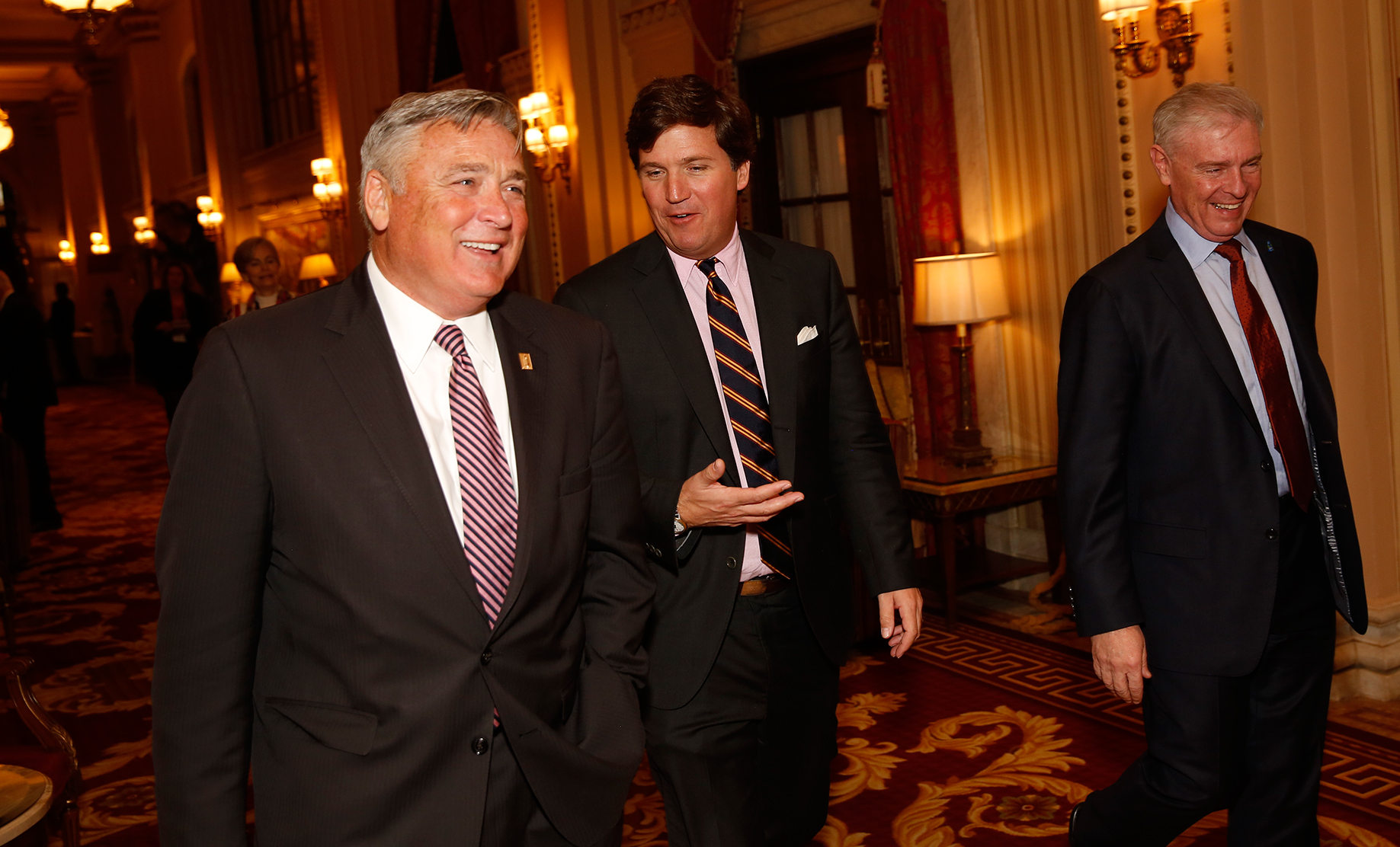
The first full day of meeting activities began Monday morning with a report by Tom Gilligan, the Tad and Dianne Taube Director at the Hoover Institution, showcasing a lineup of Hoover scholars and the extent to which they had penetrated the Trump administration and congressional leadership, riveting the gathering. This included a report on the reach of Blueprint for America, edited by George Shultz, the Thomas W. and Susan B. Ford Distinguished Fellow at the Hoover Institution, and used heavily during the preparation of policy initiatives by the Trump administration and Congress.
Blueprint was sent to both campaigns during the election and e-mailed to eight thousand influential congressional staff members. New Secretary of Defense Jim Mattis, a former Hoover fellow, was seen carrying it into his meetings with then president-elect Trump.
Gilligan mentioned the many Hoover scholars joining the administration in pivotal roles and how other Hoover fellows are impacting the administration at high levels through ongoing advice and research.
Hoover fellow Kevin Warsh, a close adviser to the transition team and administration on economic policy, gave insights into the process and substance of the administration’s economic programs so far. He stressed the importance of Hoover in helping focus the government on the big ideas that truly define a free society—and how critical that mission is at this point in history.
Kiron Skinner, the W. Glenn Campbell Research Fellow at Hoover and also a transition team member and continuing informal adviser to the government, outlined threats and opportunities and also stressed the growing clout of Hoover as traditional academia marginalizes itself through its rigid progressive ideology. She also gave her eyewitness insights into the transition and offered a cogent analysis of the opportunities and dangers ahead for the principles of freedom.
The information, reports, and ideas kept flowing for two days.
Scholars such as Scott W. Atlas, the David and Joan Traitel Senior Fellow at Hoover, outlined the game plan for replacing ObamaCare with market- and patient-oriented solutions and how he believes that will take place, relying largely on Hoover-generated ideas. John Taylor, the George P. Shultz Senior Fellow in Economics at Hoover, made the case for the enduring value of sound economics and why he is optimistic that those principles can restore prosperity and growth. Admiral Gary Roughead, the Robert and Marion Oster Distinguished Military Fellow at Hoover, briefed the overseers on six factors that will determine the critical future of Asia in a time of transformation.
Hoover scholar Niall Ferguson and famed social scientist Charles Murray gave an intensive look at the cultural dynamic that set the stage for the Trump phenomenon—and how that dynamic will drive politics and economics for the foreseeable future. Understanding and responding to that reality will determine much of America’s path forward.
A TURNING POINT OF HISTORY
The Hoover Institution is strategically positioned, pervasively spread, and growing in stature at precisely the moment in American and global history when we are most needed. That was the major takeaway from the conference. One close administration adviser said, “Big ideas matter, and Hoover must keep big ideas in the picture. The president of the United States needs policy thinkers now more than ever. And no organization has more influence than Hoover.”
Another said, “Think tanks are on the rise. That’s where scholars can develop ideas outside the progressive echo chamber of the universities. Hoover will grow in importance.”
None of this timely, historic influence happens by accident. It happens because Hoover supporters choose to move history via ideas defining a free society. With continued support, our society will continue to remain free. That will occur because the ideas that create such freedom will receive funding and prominence from men and women of courage and insight.
EXTRA:
See more photos to get an inside look at the meeting
Read about the Johnson Center—Hoover’s DC office that is growing as a center of gravity for ideas that become policy and law. Many overseers were treated to a special open house! Go here for details.







